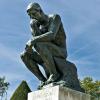I tend to get much more nonsense from religious people over my atheism than I give religious people as an atheist.
I don't see atheists going door to door telling people about atheism. Even when I moved to Japan, one of my first callers were the Jehovah's Witnesses with the Watchtower in Japanese.
Atheists You Know...
Moderator: Community Team
110 posts
• Page 5 of 5 • 1, 2, 3, 4, 5
Re: Atheists You Know...
“Life is a shipwreck, but we must not forget to sing in the lifeboats.”
― Voltaire
― Voltaire
-

 Dukasaur
Dukasaur
- Community Team

- Posts: 28147
- Joined: Sat Nov 20, 2010 4:49 pm
- Location: Beautiful Niagara





























 3
3




 2
2


Re: Atheists You Know...
the world is in greater peril from those who tolerate or encourage evil than from those who actually commit it- Albert Einstein
-

 Symmetry
Symmetry
- Posts: 9255
- Joined: Sat Feb 24, 2007 5:49 am




Re: Atheists You Know...
Siberians don't have this problem:


-

 waauw
waauw
- Posts: 4756
- Joined: Fri Mar 13, 2009 1:46 pm























Re: Atheists You Know...
Why are Christians trying to force their beliefs on us?
I feel oppressed! Sometimes I feel like I'm tied to the whipping post.
I feel oppressed! Sometimes I feel like I'm tied to the whipping post.
-

 Bernie Sanders
Bernie Sanders
- Posts: 5105
- Joined: Tue Sep 08, 2015 2:30 pm










Re: Atheists You Know...
It's weird isn't it. In the UK, at school, we had to have an element of worship in school assemblies. In the US, when I was at school, students had to pledge to be under God every day.
Weird.
Weird.
the world is in greater peril from those who tolerate or encourage evil than from those who actually commit it- Albert Einstein
-

 Symmetry
Symmetry
- Posts: 9255
- Joined: Sat Feb 24, 2007 5:49 am




Re: Atheists You Know...
Mets, you were basically saying that agnostics are a total cop out as they are on the fence. Have you ever considered they are just non-committal due to the fact that they haven't had enough evidence either way to make up their minds? That is certainly how I was for about 15 years, say 14 to late 20's.

-

 notyou2
notyou2
- Posts: 6447
- Joined: Thu Jan 15, 2009 10:09 am
- Location: In the here and now


















Re: Atheists You Know...
notyou2 wrote:Mets, you were basically saying that agnostics are a total cop out as they are on the fence. Have you ever considered they are just non-committal due to the fact that they haven't had enough evidence either way to make up their minds? That is certainly how I was for about 15 years, say 14 to late 20's.
My point is more that agnosticism is not itself an interesting philosophical idea. I described in this thread that there is really only one statement to judge, mainly the statement "there is no higher power." The fact that this is an extreme proposition does not mean that one's belief in it (or disbelief) has to be extremely confident. If I were to describe myself as 70% confident that there is no higher power, implying a 30% belief that there is one, most people would call me an atheist. What some people would call "strong" and "weak" atheism are really just ways of describing people who are closer to 100% or closer to 50% by those who are uninitiated in probability theory.
There are two possible ways to frame agnosticism. One is that agnosticism is just the uninteresting position where you ascribe equal probability to both hypotheses, where it might as well be a coin toss to you. So it is not that I have any problem with people who have that belief; what I have a problem with is people who think they have said something worth listening to when they claim they are agnostic in this way. Most of the the time, all it means to say "I am an agnostic" is "I have not thought about this issue hard enough to determine which proposition is more likely." And while that's totally fine, if that's the case, then just go talk about something other than religion, because you have basically just said "my opinion on this does not matter." So yeah, agnostics are cop outs. But as you say, I don't necessarily mean that in a pejorative way, I just mean it in a strictly factual way.
A slightly more interesting version from the probabilistic point of view is the statement that we cannot actually judge the probability; instead of it being equally likely that the statement is true or false, all we know is that the answer is somewhere between 0 and 1, but we cannot possibly know where in that interval it lies. That would require its own post to deal with. But the punch line is that I think from a scientific point of view it's really stupid.
-

 Metsfanmax
Metsfanmax
- Posts: 6722
- Joined: Wed Apr 11, 2007 11:01 pm

























Re: Atheists You Know...
Hmm, isn't it possible that agnostics have thought about the issue of divinity, and found that they simply don't find it relevant to their lives?
Akin to picking the hottest Kardashian, it may be something that wider society finds a source of debate, but agnostics really don't care about.
Or perhaps, to use another analogy, like asking someone who has no great interest in sport to pick their favourite team.
Akin to picking the hottest Kardashian, it may be something that wider society finds a source of debate, but agnostics really don't care about.
Or perhaps, to use another analogy, like asking someone who has no great interest in sport to pick their favourite team.
the world is in greater peril from those who tolerate or encourage evil than from those who actually commit it- Albert Einstein
-

 Symmetry
Symmetry
- Posts: 9255
- Joined: Sat Feb 24, 2007 5:49 am




Re: Atheists You Know...
Symmetry wrote:Hmm, isn't it possible that agnostics have thought about the issue of divinity, and found that they simply don't find it relevant to their lives?
Akin to picking the hottest Kardashian, it may be something that wider society finds a source of debate, but agnostics really don't care about.
Or perhaps, to use another analogy, like asking someone who has no great interest in sport to pick their favourite team.
Sure, but "not caring about the Kardashians" doesn't have a special name and a Wikipedia page describing it.
-

 Metsfanmax
Metsfanmax
- Posts: 6722
- Joined: Wed Apr 11, 2007 11:01 pm

























Re: Atheists You Know...
Metsfanmax wrote:Symmetry wrote:Hmm, isn't it possible that agnostics have thought about the issue of divinity, and found that they simply don't find it relevant to their lives?
Akin to picking the hottest Kardashian, it may be something that wider society finds a source of debate, but agnostics really don't care about.
Or perhaps, to use another analogy, like asking someone who has no great interest in sport to pick their favourite team.
Sure, but "not caring about the Kardashians" doesn't have a Wikipedia page describing it. Yet apparently "not caring about the God issue" does.
I personally don't buy into the "Wikipedia is the ultimate source of all human knowledge" thing.
I'm not sure that using it as the ultimate arbiter of things people don't care about is sound thinking.
the world is in greater peril from those who tolerate or encourage evil than from those who actually commit it- Albert Einstein
-

 Symmetry
Symmetry
- Posts: 9255
- Joined: Sat Feb 24, 2007 5:49 am




110 posts
• Page 5 of 5 • 1, 2, 3, 4, 5
Who is online
Users browsing this forum: No registered users

